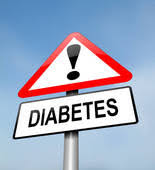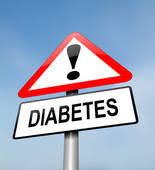When Type 2 Diabetes Is Not Addressed or Detected:
In its early stages, type 2 diabetes may not even present symptoms, which makes it easy to ignore or go undetected. However, to prevent damage to your major organs such as  your heart, kidneys, and blood vessels, it’s important to check in with your doctor and keep an eye on your blood sugar levels. So naturally, it’s important to treat diabetes it as soon as possible. And if you do experience early symptoms, these may include fatigue, increased hunger and thirst, dry mouth, frequent urination, dry mouth, and itchy skin. Over time, these symptoms may become worse as diabetes starts to damage internal organs.
your heart, kidneys, and blood vessels, it’s important to check in with your doctor and keep an eye on your blood sugar levels. So naturally, it’s important to treat diabetes it as soon as possible. And if you do experience early symptoms, these may include fatigue, increased hunger and thirst, dry mouth, frequent urination, dry mouth, and itchy skin. Over time, these symptoms may become worse as diabetes starts to damage internal organs.
Some of the complications of untreated type 2 diabetes are:
Diabetic Ketoacidosis
Among the short-term complications from type 2 diabetes is diabetic Ketoacidosis. When sugar accumulates in the blood, the body turns to using fat as a source of energy. The byproduct of this process, or Ketones, builds up in the body. Symptoms of diabetic Ketoacidosis include nausea and vomiting, shallow breath and a fruity smell on the breath, dehydration, and light headed ness. If left untreated, diabetic Ketoacidosis can be fatal.
Hyperosmolar Hyperglycemic state
Another dangerous complication if diabetes is Hyperosmolar Hyperglycemic state. It is more frequent in older patients, and it can also be fatal. It happens when sugar accumulates in the blood and the body tries to eliminate that excess sugar by passing it to urine. Initial symptoms may include dark urine and increased thirst. If left untreated, it may lead to dehydration, seizures, coma, and even death.
Other diabetes-related conditions can be fatal or severely affect your daily life. For example:
Glaucoma
Increased pressure inside the eye damage the blood vessels that carry nutrients to the retina. Over time, the retina may be damaged by this additional pressure, which causes vision loss.
Autonomic Neuropathy
Autonomic Neuropathy is a type of nerve damage that affects the autonomic nerves, which control many organs such as the bladder and the intestines. Like many other complications from diabetes, Neuropathy is the result of damage to the small blood vessels due to sugar buildup in the blood. In this case, the small capillaries that nourish the nerves are affected, which means the nerves don’t get enough nutrients.
Damage to the nerves prevents the affected organ from working correctly. For example, if the nerves that control digestion are affected, you may experience, nausea and vomiting, and diarrhea.
Kidney damage
When the excess sugar in your blood damages the blood vessels in your kidneys, it will not be able to filter your blood from any toxins or waste. This can have serious consequences to our health. Kidney damage may be severe enough to cause kidney failure. Some of the early symptoms of kidney failure are weight gain and swelling. If the blood sugar levels are not controlled, the condition can become worse and you may experience nausea and vomiting, fatigue, loss of appetite, anemia, and muscle cramps.
Increased Risks For Heart Disease
Type 2 diabetes increases risks for heart disease, which can lead to premature death. Heart disease is the leading cause of death in both men and women, and the Centers For Disease Control says that type 2 diabetes is a top contributing factor.
Bottom Line, Untreated type 2 diabetes can cause great damage to your organs, causing serious, possibly fatal conditions. Luckily, Type 2 Diabetes can be managed with medication and lifestyle changes like a healthy diet, more physical activity, and weight loss. Speak with your doctor and get your blood checked, especially if you have any one of the risk factors for the disease, such as obesity or overweight and/or poor diet.
XoxoX
Chef Murph
Tags: Chef K.T. Murphy, chef keith murphy, chef murph, Chef Murph TV, Chef Murphy, Chinese, food, Foodist Networks, Global Fusion Americana, Recipes
